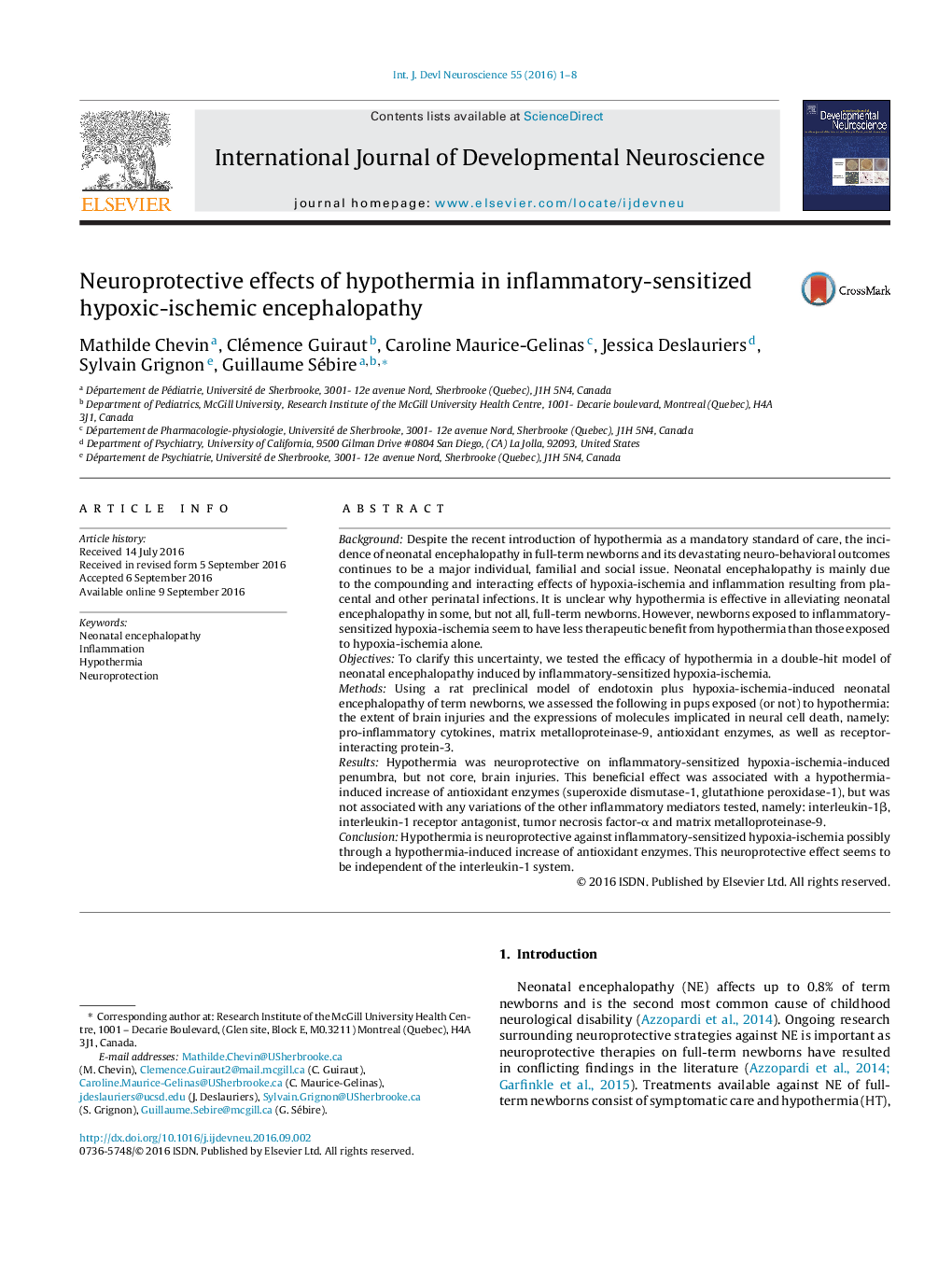| Article ID | Journal | Published Year | Pages | File Type |
|---|---|---|---|---|
| 2785564 | International Journal of Developmental Neuroscience | 2016 | 8 Pages |
•HT is neuroprotective against inflammatory-sensitized HI.•HT increases antioxidant enzymes, responsible for clearing reactive oxygen species.•The beneficial effect of HT is not mediated by modulation of the IL-1 system.
BackgroundDespite the recent introduction of hypothermia as a mandatory standard of care, the incidence of neonatal encephalopathy in full-term newborns and its devastating neuro-behavioral outcomes continues to be a major individual, familial and social issue. Neonatal encephalopathy is mainly due to the compounding and interacting effects of hypoxia-ischemia and inflammation resulting from placental and other perinatal infections. It is unclear why hypothermia is effective in alleviating neonatal encephalopathy in some, but not all, full-term newborns. However, newborns exposed to inflammatory-sensitized hypoxia-ischemia seem to have less therapeutic benefit from hypothermia than those exposed to hypoxia-ischemia alone.ObjectivesTo clarify this uncertainty, we tested the efficacy of hypothermia in a double-hit model of neonatal encephalopathy induced by inflammatory-sensitized hypoxia-ischemia.MethodsUsing a rat preclinical model of endotoxin plus hypoxia-ischemia-induced neonatal encephalopathy of term newborns, we assessed the following in pups exposed (or not) to hypothermia: the extent of brain injuries and the expressions of molecules implicated in neural cell death, namely: pro-inflammatory cytokines, matrix metalloproteinase-9, antioxidant enzymes, as well as receptor-interacting protein-3.ResultsHypothermia was neuroprotective on inflammatory-sensitized hypoxia-ischemia-induced penumbra, but not core, brain injuries. This beneficial effect was associated with a hypothermia-induced increase of antioxidant enzymes (superoxide dismutase-1, glutathione peroxidase-1), but was not associated with any variations of the other inflammatory mediators tested, namely: interleukin-1β, interleukin-1 receptor antagonist, tumor necrosis factor-α and matrix metalloproteinase-9.ConclusionHypothermia is neuroprotective against inflammatory-sensitized hypoxia-ischemia possibly through a hypothermia-induced increase of antioxidant enzymes. This neuroprotective effect seems to be independent of the interleukin-1 system.
